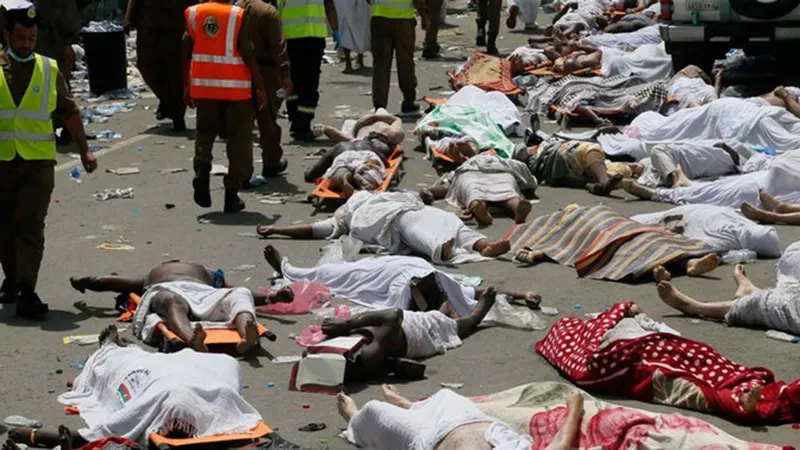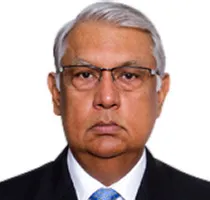-
CENTRES
Progammes & Centres
Location
The tragedy last week snuffed out over 750 lives and injured over 800 pilgrims, during the annual Hajj ritual of stoning the Devil at Mina, a few kilometres from Mecca. This incident again highlights a recurring theme that has dogged the Hajj for hundreds of years.

While the Saudi Ambassador has been summoned to receive a protest at the Iranian foreign ministry, the Saudi authorities have been on the defensive.
Some officials have blamed pilgrims for not following guidelines and lacking patience and one official has acknowledged that for an unknown reason two walkways from Mina had been closed, forcing pilgrims into massing on other walkways and causing the stampede.
The Saudi Crown Prince has ordered an enquiry and called it a tragic incident. By all accounts the elderly, the infirm and physically weak pilgrims constitute the bulk of the dead and wounded.
The principal cause of these recurring stampedes seems to be the rush of pilgrims competing with one another to complete the rituals within the stipulated time frame.
There are too many pilgrims all converging at the same site, pushing and shoving to throw seven stones at the Devil. Failure of management and inadequate infrastructure adds to the chaos.
By all eyewitness accounts gathered by the international media, the failure of the Saudi authorities at crowd control caused the tragedy.
While Saudi Arabia claims to have spent billions on infrastructure, it also earns billions from the annual pilgrimage by charging fees for all services and facilities.
Saudi Arabia is one of the richest countries in the world having amassed huge wealth as a major oil producing country. It is, therefore, not hard pressed for funds.
Sometime in the 1980s, the Saudi king adopted the title of ’Custodian of the two holiest Sites’ in an obvious attempt to take over the mantle of religious leadership of the Islamic world.
The repeated tragedies during Hajj have raised serious concerns about Saudi Arabia’s ability to handle the Hajj which draws more and more pilgrims from across the world.
It is clear that the Saudi authorities have ignored safety concerns that have been raised from time to time.
In a country that is so regimented and controlled, it is not surprising that some of the billions spent on managing the Hajj have been misdirected for personal profit.
One obvious reason is the over-emphasis on building malls and hotels that have restricted open spaces for the movement of such a large number of pilgrims.
The other reason is total lack of public accountability in an opaque and authoritarian system. No one has ever been punished for mismanagement that has caused so much human suffering.
This tragedy is a major challenge to the new Saudi King and his revamped administration, all drawn from the ruling family.
The Saudis have got involved in the war in Yemen and in India, recently, a Saudi diplomat was accused of rape and trafficking women.
Apart from the docile and obedient Saudi media and its counterparts in the Gulf sheikhdoms, there is no sympathy for the Saudis in the regional media. For the Saudis, the scorecard has been pretty poor of late.
Critics in the Arab world have echoed earlier calls for handing over the management of the Hajj to a special international Muslim body or the Organisation of Islamic Cooperation (OIC).
This is clearly anathema to the Saudis and there is no need to hold one’s breath for this to happen.
(The writer is a Distinguished Fellow at Observer Research Foundation and a former Secretary in the Ministry of External Affairs. He served as a young diplomat in Saudi Arabia)
Courtesy: The Quint
The views expressed above belong to the author(s). ORF research and analyses now available on Telegram! Click here to access our curated content — blogs, longforms and interviews.

Pinak Chakravarty was a Visiting Fellow with ORF's Regional Studies Initiative where he oversees the West Asia Initiative Bangladesh and selected ASEAN-related issues. He joined ...
Read More +